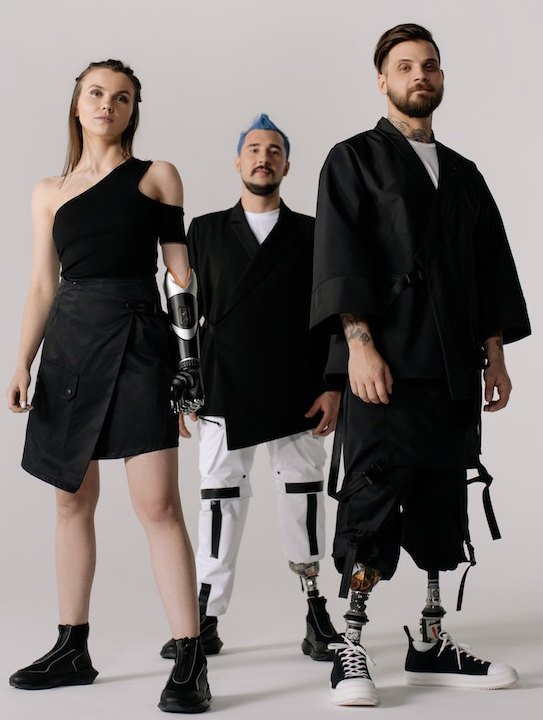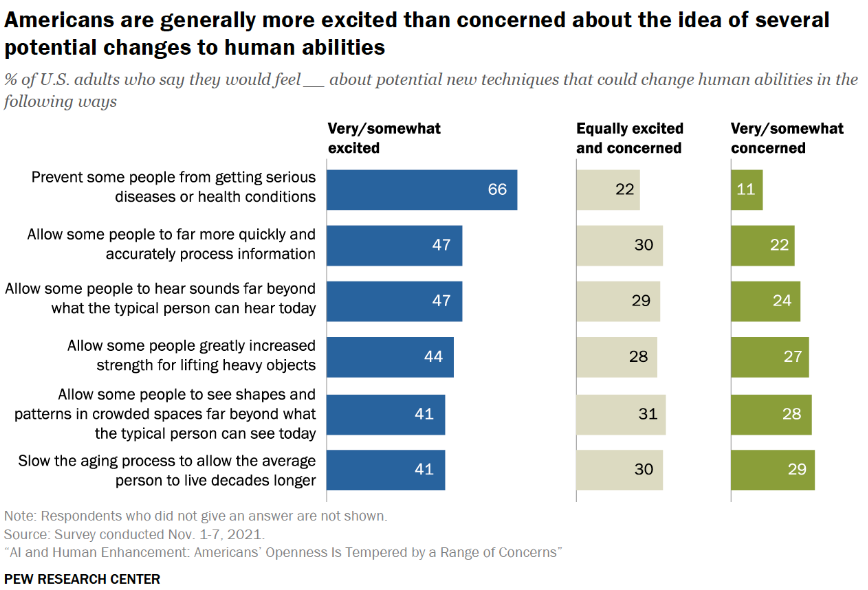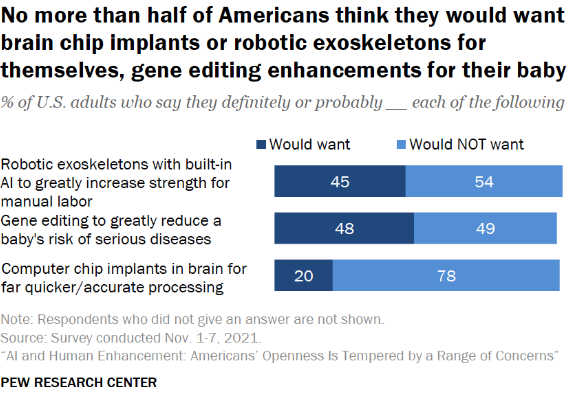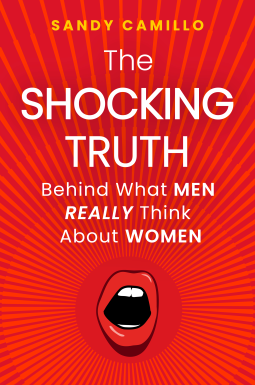Homoenhanced
 In this millennium, homo sapiens will go extinct because a new species will replace them.
In this millennium, homo sapiens will go extinct because a new species will replace them.
This robust species will not be extraterrestrial aliens. They will be our descendants. But we will not call them Homo sapiens sapiens. We may call them:
- Homo Sapiens Superior or Homo Superior or Mutants: as the Marvel X-men called them.
- Transhumans
- Posthumans
- Human+
However, transhuman conjures up images of transgender humans, while posthuman implies that they are no longer human. Therefore, those terms are suboptimal.
Human+ is catchy, but I favor the term:
Homoenhanced
Homoenhanced preserves our hominid heritage, coming from homo.
Homoenchanced people will be enhanced in two ways:
1. Cybernetically
This is already happening, as humans have:
- Ear implants to help them hear.
- Pacemakers fix irregular heartbeats.
- Prostheses to replace legs.
- Contact lenses & Lasik to correct vision.
- Artificial hearts
- Dialysis machines
Companies such as Neurolink plan to connect brains to the Internet.
We should be able to replace every organ with an electromechanical one.
2. Biologically
Scientists are growing organic material in labs. Researchers will manufacture these cells, tissues, and organs for simple animals, but ultimately, they will reproduce human organs.
Biologists will extend and augment human life by:
- Tweaking telomeres.
- Rejuvenating dying cells.
- Delivering gene therapy.
- Replacing failed organs.
Israeli company Renewal Bio is on the verge of creating realistic synthetic embryos grown in jars.
Biomechanical
There's a race between cybernetic & biological methods of extending & enhancing human life. The cybernetic path will ultimately win that race because metal is much more durable than flesh.
However, in the meantime, it's most likely that the homoenhanced will employ a combination of cybernetic & biological improvements. A Homoenhanced human will have rejuvenated biological eyes but cybernetic legs, for example.
Our species will adopt biomechanical solutions to become Homoenhanced.
In a few centuries, our descendants will shed their remaining biological aspects & be 100% electromechanical and perhaps primarily digital.
Can't we co-exist with the homoenhanced?
Our ancestors assimilated and killed Neanderthals. Our descendants will be more humane to us, but unmodified homo sapiens will be a relic, a bit like the San Bushmen and the Aboriginal people in Australia.
What is a species?
One of the hallmarks of a species is that it can easily reproduce with others like it. No matter how much a human tries to impregnate a gorilla or chimp, they will never reproduce.
I'm predicting that the homoenhanced will alter their genes so much that they will no longer be able to mate with homo sapiens reliably.
A few million years ago, several hominid species were running around. Today, there is only one.
By playing with our genes, we will return the Earth to how it was before: with many hominid species.
However, instead of having a dozen hominid species, perhaps we will have hundreds. Still, there's a chance that a global government will attempt to restrict such diversity.
Hominids who populate the Solar System will undoubtedly evolve into a different species, even if they resist homoenhanced technology. Evolutionary pressures come from altering the environment.
Simply having different gravity may be enough to alter our genetics sufficiently to create a new hominid branch. Living with much more cosmic ray exposure will allow humans slightly more resistant to toxic radiation than other humans to reproduce widely.
It will take time, but that's where we're going.
What Americans think of human enhancements
In 2022, Pew Research released fascinating results from a poll that asked Americans about human enhancements.
Pew focused on three areas:
- Robotic exoskeletons with built-in AI computer systems can significantly increase a person’s strength and ability to lift heavy objects for manual labor jobs such as manufacturing or construction.
- Gene editing (changing the DNA of embryos before a baby is born) reduces a baby’s risk of developing serious diseases or health conditions over its lifetime.
- Computer chips are surgically implanted in the brain, making it possible to far more quickly and accurately process information.
US citizens are more bullish than bearing regarding homo enhancement.

I bet Europeans would be far more skeptical than Americans and that East Asians would agree with the Americans.
What do you think?
But Americans have some skepticism regarding homoenhanced technologies

I suspect these survey results will dramatically change once people start seeing such enhancements in action.
It's a bit like asking people in 1890 if they would be willing to give up their horse for an automobile. Given the clunky, unreliable nature of cars, they would say no.
But once people see how exoskeletons and chip implants give others an advantage, they will want them.
And what parent wouldn't do gene editing if there's a 99.99% chance of significantly reducing their baby's risk of getting a severe disease? I bet that all of the 49% who said that they "would NOT want" to use such technology on their kids vaccinate their babies against measles, mumps, and rubella!
Vaccines we pump our babies with are simply a technology that we use to reduce their chances of problems.
If another new technology can eliminate cancer or heart disease, you'll see 95% of parents lining up for it.
2016 Pew Research polls
The unbiased Pew Research Center conducted two surveys in 2016 that reveal what the public thinks about homo enhancement. If you have 20 minutes to dive deep, read Pew's extended summary. Although they wrote it in 2016, it's still relevant and revealing.
- U.S. Public Wary of Biomedical Technologies to ‘Enhance’ Human Abilities: "Americans are more worried than enthusiastic about using gene editing, brain chip implants and synthetic blood to change human capabilities."
-
American Voices on Ways Human Enhancement Could Shape Our Future: "Focus group participants discuss biomedical developments that could boost the performance of people’s bodies and brains."
One takeaway is that people want fairness. If some genetic enhancement is created, everyone should have access to it. The article sums up:
Several took the argument to a broader level by arguing that the long-term impact of unequal access to human enhancements would be that the wealthy and their offspring would have better survival rates and be more productive than those from less-well-off families, because richer people would have the best immune systems. That could deepen class fissures and lead to dystopia.
However, when has any enhancement been fairly or equally distributed?
Look at all the healthcare benefits Americans and Europeans have, whereas most Africans lack them. Why do you think many African countries have less than 60 years of life expectancy, whereas Japan is over 80?
It's because technology has never been evenly distributed. And it never will be.
Therefore, we should abandon our pipedream that there should not be techno haves and have-nots. It's already unequal. Communism doesn't work. Perfect equality doesn't exist. If humanity halted technological developments and enhancements that were unevenly distributed, then we'd still be living in caves.
The article wrote:
"If enhancements were embraced by wide segments of the industry and government, people said, what’s to prevent them from becoming mandatory?"
Several vaccines are mandatory. You can't visit African countries without a yellow fever vaccine. You can't go to kindergarten without certain vaccines.
I could see the government and taxpayers tired of spending trillions on healthcare, so they mandate everyone to get the gene modification that prevents you from being obese. The government didn't want society burdened with polio and rubella. One day, they may want to avoid the burden of obesity.
2022 Pew Research polls
AI and Human Enhancement: Americans’ Openness Is Tempered by a Range of Concerns: It includes the 8 subjects:
1. How Americans think about artificial intelligence
2. Public more likely to see facial recognition use by police as good, rather than bad for society
3. Mixed views about social media companies using algorithms to find false information
4. Americans cautious about the deployment of driverless cars
5. What Americans think about possibilities ahead for human enhancement
6. Public cautious about enhancing cognitive function using computer chip implants in the brain
7. Americans are closely divided over editing a baby’s genes to reduce serious health risk
8. Mixed views about a future with widespread use of robotic exoskeletons to increase strength for manual labor jobs
Hypocrisy #1
It's funny that Americans are generally against brain implants, yet they think it will increase income disparity. Presumably, the income disparity would favor those with the implants. Therefore, are we to believe Americans would be against tech increasing their income?
These 2022 poll results indicate that people are still Luddites regarding Homoenhanced tech. I suspect that will fade once they see it in action.
There will undoubtedly be problems and horror stories, but the good news will outweigh the bad and compel mass adoption.
Hypocrisy #2
Americans wouldn't want to be in a driverless car, but they say they will make the roads safer. That's because 39% say driverless cars will decrease accidents (27% say increase). However, 63% would not want to drive in such a car (37% would).
Hypocrisy #3
What topics would you like me to cover?
Contact me with ideas.




